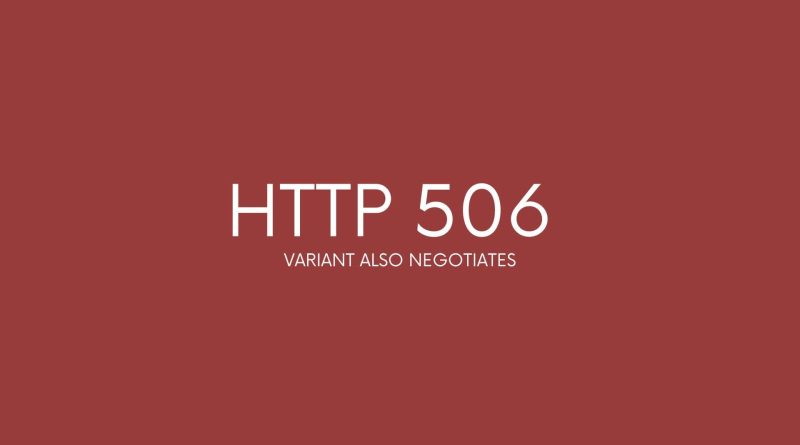HTTP 506 Variant Also Negotiates: A Comprehensive Guide To Fix It
The HTTP 506 Variant Also Negotiates error is one of the most perplexing errors for webmasters. It’s a complex and hard-to-troubleshoot issue that can severely disrupt website functionality, yet it often goes unnoticed until it has caused significant damage. In this comprehensive guide, we’ll explore what HTTP 506 is, how to identify its symptoms and the best strategies for resolving it quickly and effectively.
At its core, HTTP 506 occurs when two servers cannot agree upon which version of a given resource should be served up to a user. This disagreement can cause browsers to become stuck in an infinite loop as they attempt to negotiate between the two versions – causing websites to slow down or even crash altogether. But by understanding the underlying causes of HTTP 506 and implementing the right solutions, webmasters can ensure their sites remain secure and functional.
What Is The Error 506 Variant Also Negotiates?
Error 506 Variant Also Negotiates is an HTTP status code that indicates a transparent content negotiation failure. It’s part of the Hypertext Transfer Protocol (HTTP) and is used to signal an internal configuration error within the server. This particular type of response status code responds when two conditions are met: if there’s both a Vary header present in the request and its value contains “negotiate”.
In such cases, the ‘Variant also negotiates’ response status code will be sent back from the server. It signals to clients that additional steps must be taken for successful content negotiation. The ‘variant also negotiates’ response status code helps prevent infinite loops by informing clients about what went wrong during negotiation processes on behalf of servers. Without it, requests would continue going around in circles without ever providing useful results for either parties involved.
To sum up, Error 506 Variant Also Negotiates is an HTTP Status Code related to Content Negotiation which informs clients when other steps need to be taken for successful negotiation. Next we’ll look at causes of this issue.
Causes Of Http 506 Error
The HTTP 506 error is caused when a server supports multiple variants of the same resource but can’t decide which variant to select. This leads to a circular reference in the negotiation process, as the request and response status codes are constantly being sent back and forth between client and server. Specifically, it occurs when one or more of the headers supplied by the client during content negotiation cannot be honored by the proper end point on the server side. It is an issue with how clients and servers interact under certain circumstances using Hypertext Transfer Protocol (HTTP).
This type of problem can arise from several common scenarios such as incorrect configuration settings for web hosting services, incorrectly configured proxies or caching mechanisms, or even outdated versions of underlying software components. Whatever the root cause may be, these types of issues should be addressed immediately before they become bigger problems that have a great impact on user experience. To properly resolve this issue requires understanding both sides of communication: client and server.
How To Fix 506 Variant Also Negotiates
The 506 Variant Also Negotiates status code is a relatively new protocol error, and it can be difficult to fix. Fortunately, there are several steps that one can take to resolve the issue.
Firstly, it’s important to identify the proper negotiation endpoint for the chosen variant resource. This ensures that multiple variants of the given resource don’t interfere with each other when requesting data from a server.
Secondly, once this has been accomplished, it’s important to establish which variant is best suited for the request so that no further errors occur due to incorrect response status.
Similar Http Status Codes To 506 Variant Also Negotiates
The 506 Variant Also Negotiates status code is one of many HTTP status codes that can indicate a server error. Other similar codes include the 505 Version Not Supported and 512 Precondition Failed, which each denote an internal configuration issue with the chosen variant resource. These three codes are usually caused by either a misconfiguration or lack of configuration regarding how the server should engage with requests for alternative variants. If these errors occur, it’s likely due to a configuration error on the part of the server administrator or developer, rather than an outside influence.
All HTTP status codes by categories
Informational responses
(100 – 199)



